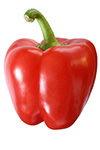Sign In Chef

By using our free meal planner (and the rest of spoonacular.com) you have to agree that you and only you are responsible for anything that happens to you because of something you have read on this site or have bought/cooked/eaten because of this site. After all, the only person who controls what you put in your mouth is you, right?
Spoonacular is a recipe search engine that sources recipes from across the web. We do our best to find recipes suitable for many diets — whether vegetarian, vegan, gluten free, dairy free, etc. — but we cannot guarantee that a recipe's ingredients are safe for your diet. Always read ingredient lists from the original source (follow the link from the "Instructions" field) in case an ingredient has been incorrectly extracted from the original source or has been labeled incorrectly in any way. Moreover, it is important that you always read the labels on every product you buy to see if the product could cause an allergic reaction or if it conflicts with your personal or religious beliefs. If you are still not sure after reading the label, contact the manufacturer.
We also attempt to estimate the cost and calculate the nutritional information for the recipes found on our site. Again, we cannot guarantee the accuracy of this information. Additionally, our nutrition visualizer that suggests that you limit sodium, sugar, etc., and get enough protein, vitamins, and minerals is not intended as medical advice. Similarly, our health tips are based on articles we have read from various sources across the web, and are not based on any medical training. The team behind spoonacular does not possess any medical qualifications and the information may be found to be incorrect or out of date based on future research. If you need help planning your diet or determining which foods (and recipes) are safe for you, contact a registered dietitian, allergist, or another medical professional.
Spoonacular is not responsible for any adverse effects or damages that occur because of your use of the website or any information it provides (e.g. after cooking/consuming a recipe on spoonacular.com or on any of the sites we link to, after reading information from articles or shared via social media, etc.)
×$2.82 per serving

3 likes

Ready in 45 minutes

Spoonacular Score: 85%
Couscous Salad With Roasted Vegetables requires roughly 45 minutes from start to finish. One serving contains 485 calories, 12g of protein, and 29g of fat. This lacto ovo vegetarian recipe serves 10 and costs $2.82 per serving. It is brought to you by Foodista. 3 people have tried and liked this recipe. It works well as a hor d'oeuvre. If you have to 3 sized squashes, chicken stock, olive oil, and a few other ingredients on hand, you can make it. Taking all factors into account, this recipe earns a spoonacular score of 81%, which is amazing. Users who liked this recipe also liked Couscous Salad With Roasted Vegetables And Chickpeas, Vegan Couscous Salad with Roasted Vegetables, and Vegan Couscous Salad with Roasted Vegetables.
Chardonnay, Sauvignon Blanc, and Gruener Veltliner are great choices for Salad. Sauvignon Blanc and Gruner Veltliner both have herby notes that complement salads with enough acid to match tart vinaigrettes, while a Chardonnay can be a good pick for creamy salad dressings. The Dutton-Goldfield Dutton Ranch Chardonnay with a 4.7 out of 5 star rating seems like a good match. It costs about 43 dollars per bottle.
 2013 was another stellar growing season in the Russian River Valley; warm spring, great flowering weather, and a long moderate ripening season. Our blocks for the Dutton Ranch blend were harvested between September 9 and October 11; the fruit was beautifully clean and ripe, and gave us wines with the acid backbone and luscious citrus and stone fruit flavors we so love from our neighborhood. This wine is about freshness and balance: in the nose it leads with Meyer lemon, pear and mineral notes, with tropical and ginger overtones. In the mouth, the lusciousness of this season is balanced by solid acidity and an evolving fruit core that keeps you coming back. Lemon sourball, ripe pear and a touch of green apple fill out the fruit profile, while the steely minerality and sweet cream add a complexity that we love in this wine. Moderate alcohol and the signature juicy acidity of Green Valley facilitate the fresh, lingering citrus/ginger finish. This is a wine that evolves in the glass and will easily reward 5 years of cellar aging, but both will be a challenge with its immediate allure.
2013 was another stellar growing season in the Russian River Valley; warm spring, great flowering weather, and a long moderate ripening season. Our blocks for the Dutton Ranch blend were harvested between September 9 and October 11; the fruit was beautifully clean and ripe, and gave us wines with the acid backbone and luscious citrus and stone fruit flavors we so love from our neighborhood. This wine is about freshness and balance: in the nose it leads with Meyer lemon, pear and mineral notes, with tropical and ginger overtones. In the mouth, the lusciousness of this season is balanced by solid acidity and an evolving fruit core that keeps you coming back. Lemon sourball, ripe pear and a touch of green apple fill out the fruit profile, while the steely minerality and sweet cream add a complexity that we love in this wine. Moderate alcohol and the signature juicy acidity of Green Valley facilitate the fresh, lingering citrus/ginger finish. This is a wine that evolves in the glass and will easily reward 5 years of cellar aging, but both will be a challenge with its immediate allure.
» Get this wine on Wine.com








































Read the detailed instructions on Foodista.com – The Cooking Encyclopedia Everyone Can Edit